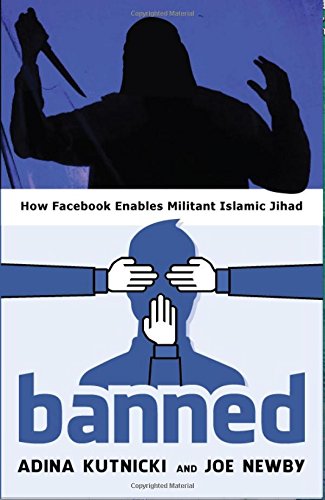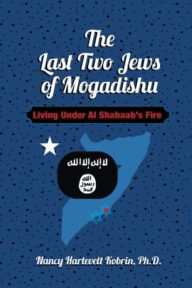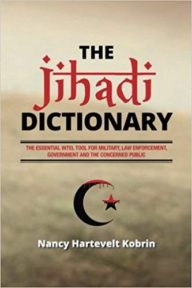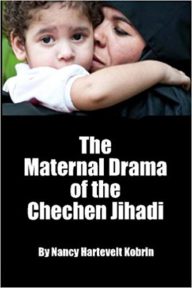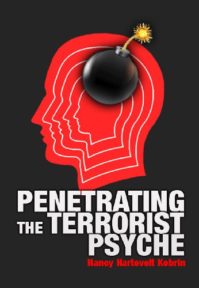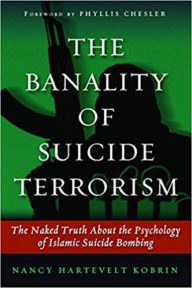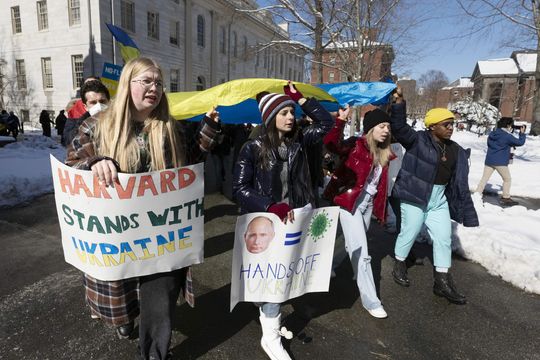
Free Inquiry Suffers as War Fever Grips Harvard
WALL STREET JOURNAL | By M. Todd Henderson | March 16, 2022
A university’s purpose isn’t to rally support. It’s to provide a haven for debate, including dissent.
Lawrence Bacow, president of Harvard, issued a statement Feb. 28 condemning the Russian invasion of Ukraine on behalf of the university. It decried the “deplorable actions of Vladmir Putin ” and asserted that Harvard has an obligation to speak out because “institutions devoted to the perpetuation of democratic ideas and to the articulation of human rights have a responsibility to condemn such wanton aggression.”
It seems hard to disagree, but I do. I’m no fan of Mr. Putin, and I certainly don’t want Russia to swallow Ukraine. I disagree because it is antithetical to the mission of a university to take a position on the war—even if everyone on campus opposes it.
To understand why, go back to 1966, when the U.S. government revised its rules about the military draft. College students had been generally exempt. But in need of more bodies, the government asked universities for the names of students in the bottom half of the class to make them eligible for conscription. At the University of Chicago, students rebelled. In May 1966, almost 500 students shut down the administrative building for several days to protest the policy. This raised the question of what position, if any, the university should take on the war in Vietnam.
To answer this question, President George Beadle appointed a committee led by law professor Harry Kalven Jr. The committee’s work, the Kalven report, is a founding document of the University of Chicago’s commitment to open inquiry. The bottom line is simple: Neither the university nor any of its parts may take any positions on matters of public concern, unless they threaten the university itself. According to the Kalven report, “the university is the home and sponsor of critics; it is not itself the critic.”
Not taking official positions is essential to a university’s mission as a place where ideas and theories are developed and tested. To succeed, the report argues, “a university must sustain an extraordinary environment of freedom of inquiry and maintain an independence from political fashions, passions, and pressures.” Perhaps someone on campus has a dissenting view about the attempted takeover of Ukraine, and official positions might chill that view. That view may be wrong, but it should be proved so, not silenced.
University of Chicago political scientist John Mearsheimer has argued for years that, by pushing the boundaries of the North Atlantic Treaty Organization too far, America would be partly to blame for a Russian invasion. There is a student petition on campus to silence him, calling him a defender or an apologist for Mr. Putin’s war. But whether Mr. Mearsheimer is right or wrong, the Kalven report ensures that his university won’t silence him. His point of view will be tested in the marketplace of ideas, not censored by administrators.
Especially in an age of ideological fads and Twitter mobs, we need boundaries that protect the pursuit of truth. Bad ideas will sometimes have a home on campus. But the risks to truth from kowtowing to popular opinion are simply too great.
In his statement condemning the Russian invasion, Harvard’s president noted that the Ukrainian flag would fly over Harvard Yard and that “Harvard University stands with the people of Ukraine.” In 1943, during another war, the Supreme Court considered a West Virginia statute that required public-school students to salute the American flag during the Pledge of Allegiance. In the decision striking down the law, Justice Robert Jackson wrote that “if there is any fixed star in our constitutional constellation, it is that no official, high or petty, can prescribe what shall be orthodox in politics, nationalism, religion, or other matters of opinion.”
The Kalven report applies this same idea. Scholars and students should be free to think and say what they believe rather than have to follow the orthodoxy of university presidents. If faculty and students want to stand with Ukraine, that is their right. Telling them that they must do so is not only contrary to the mission of universities, it is un-American.
Mr. Henderson is a law professor at the University of Chicago.

